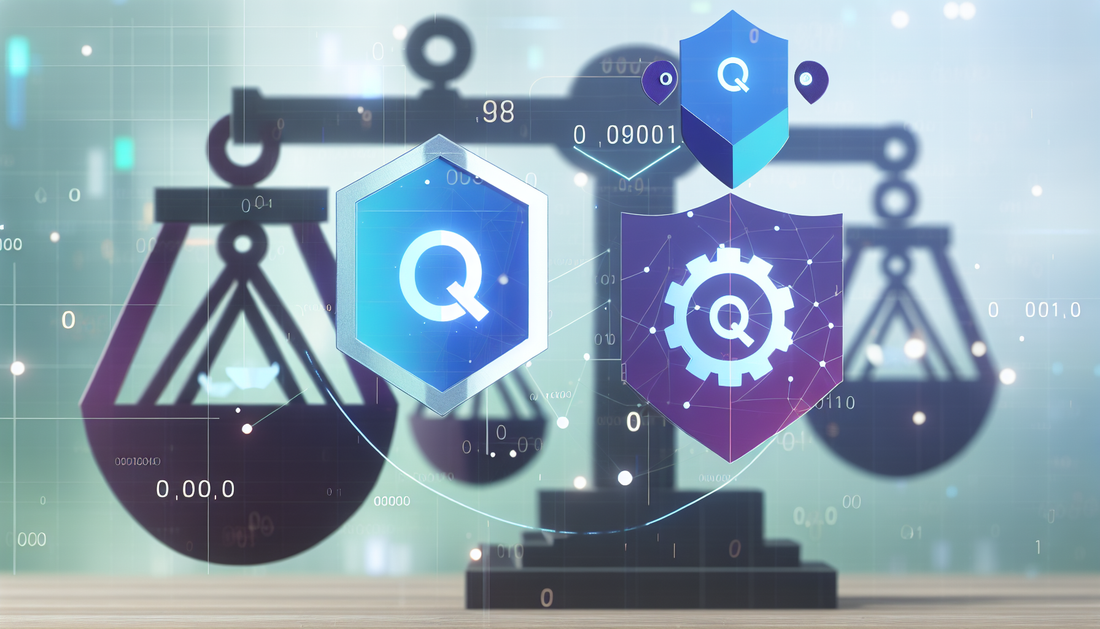
Quantstamp vs. Rivals: A Security Showdown
Share
QSP (Quantstamp) vs. Rivals: How Does It Compare?
Quantstamp (QSP) occupies a unique niche in the cryptocurrency ecosystem as a blockchain security protocol specializing in smart contract auditing. Its focus on ensuring the integrity and safety of decentralized applications positions it competitively among blockchain security-focused assets. However, it’s vital to examine how QSP compares to its closest rivals in the same space, particularly in terms of technology, market penetration, and utility.
Technology and Core Features
Quantstamp prioritizes decentralized, automated security audits of smart contracts. Its protocol leverages both manual and automated checks to assess vulnerabilities. While this provides a broad spectrum of security, competitors such as CertiK and OpenZeppelin also offer sophisticated solutions. CertiK, for instance, utilizes a formal verification approach, which mathematically ensures that smart contracts adhere to their specifications. OpenZeppelin, on the other hand, offers a widely-used library of audited smart contract templates, appealing to developers seeking reliability and customization.
A key differentiator for Quantstamp is its blockchain-agnostic design, enabling the auditing of smart contracts across various platforms, including Ethereum, Solana, and Binance Smart Chain. However, rivals like CertiK provide similar compatibility while also integrating AI-based tools for real-time risk assessment, giving them a slight edge in innovative feature sets. OpenZeppelin, although more focused on Ethereum, has the advantage of community trust due to its role as a foundational tool in the developer ecosystem.
Market Penetration and Adoption
Quantstamp has secured strategic partnerships within the blockchain space, performing audits for notable projects such as Binance, Cardano, and MakerDAO. These partnerships bolster its credibility, yet its competitors also boast significant achievements. CertiK has expanded aggressively, with auditing services used in DeFi, gaming, and NFT platforms, while OpenZeppelin’s tools are almost ubiquitous among Ethereum developers globally.
In terms of mainstream adoption, CertiK appears to have carved out a larger slice of the market, offering insurance products and a security leaderboard to enhance user protection. OpenZeppelin’s focus on tooling rather than directly auditing puts it in a complementary rather than competitive position, though its open-source approach ensures widespread usage.
Utility and Token Usage
The QSP token plays a key role in Quantstamp's ecosystem by incentivizing participants to perform audits and validate them. Although this provides utility, assets like CTK (CertiK's native token) also integrate staking options that enhance security for users while boosting participation. This dual functionality can make CertiK’s token appear more versatile by comparison, especially for users looking for financial incentives beyond token utility.
It’s also worth noting that OpenZeppelin does not rely on a native token for its services, allowing it to remain neutral and developer-focused. This can appeal to projects aiming to avoid tokenomics-driven ecosystems while still benefiting from top-tier security tools.
Conclusion
Overall, Quantstamp holds a solid position in the blockchain security sector, but competition is fierce. Projects like CertiK and OpenZeppelin offer equally compelling, if not more diverse, approaches to smart contract security. While QSP shines in specific areas, choosing a blockchain security partner often depends on a project's unique needs and priorities, with each offering its own strengths and limitations.
